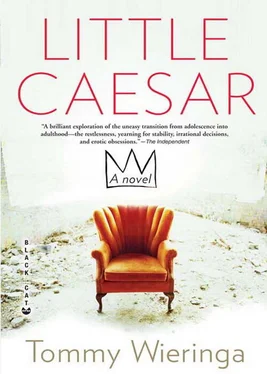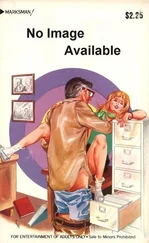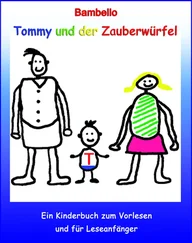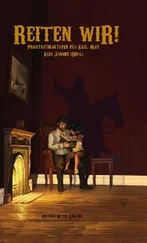I laughed uneasily.
‘You’ll just have to go along, I guess.’
But that convinced no one. The question remained hanging.
‘God, I don’t know,’ I said then. ‘I can’t split myself down the middle.’
‘But you’re going, is that for sure?’
We drove into Barstow, the outskirts with their rolling streets. The conjecture of dismal lives. The end of yet another day. We drove in silence, crawling along, as though we had lost something.
On a wall beside the tracks, the origins of Barstow were portrayed in words and images. The desert town had first been called Waterman Junction, and arose here when two railroads met at the Mojave River. At that junction, in 1886, a post office was built.
A freight train roared by, its whistle screamed. Behind it, on the other side, the old hills withdrew in late, crimson light. The color sanctified them. Spotlights flashed on around the switching yard, only then did the final boxcar pass. The low sun fell beneath a pigeon-gray bed of cloud.
We drove on. A sign along the way read BRINGING THE LIGHT OF JESUS TO A DYING WORLD. The road climbed, the traffic light turned red, and then we saw it, the sky burning over Barstow. Sarah parked the car in a lot in front of a garage, we watched in the certainty that a sunset like this surpassed our powers of expression. A narrow strip between the bed of cloud and the San Bernardino Mountains to the west, that was where the light was concentrated. It scorched the bottoms of the clouds, was tossed out in beams and sparked across the car roofs of Barstow. She turned the engine off, her face was bathed in red light. I put my hand on her leg.
‘Hey, hi, anybody home?’
She shook her head. Her curls of molten copper. She said, ‘I always knew you would go away.’
‘You couldn’t have. I didn’t know that myself.’
She nodded stubbornly.
‘I knew. Some people have things to stay for. Not you. You have things to go away for.’
In December my mother and I moved from the wideness of the Pacific to the enclosure of a country that did not border on a single sea: Austria. My father’s native country. We were soldiers in summer uniforms, ambushed by the winter. We bought caps, scarves, gloves, and thermal underwear for me, because I’ve never been able to stand the cold. Some snow fell in Vienna, by Christmas it had melted again. We stayed at the Hotel Imperial, a marble quarry. The room was divided by double doors into two sleeping quarters; when I had to go to the toilet at night I tiptoed through her compartment to the bathroom. Whenever I thought about Sarah, missing her made me physically unwell. It chafed, an unrelenting homesickness. Every day I thought about going back, she called to me from across seas and mountains, but I plugged my ears because of a promise. A ball and chain, the dead weight of a conviction.
I underwent Vienna in a lucid kind of stupor. The ecstatic Christmas atmosphere weighed on me. As did the obsession with Mozart, Sissi and Klimt’s The Kiss . In the Innere Stadt I shuffled along amid droves of Asians and Arabs, tourists decked out with paper shopping bags and shoeboxes. In the streets to both sides of the hubbub the buildings rose up like box canyons. You were lowered to the bottom of the ravine and looked up past the steep walls of housing blocks, to the sky cut into squares above. Behind the walls was yet another inner city, an endless network of corridors leading to millions of closed rooms, to bedrooms, cellars, salons and attics, in all those spaces lived Man with his bacteria. In there, century after century, people had breathed, loved, laughed, died and wept, and not a one of them aware of the lives before or after them, in exactly the same spaces.
*
Darkness fell early. At nine I would dine with my mother. Perhaps Rollo Liban would be there too, he was producing the film about the Viennese Edelhure Josephine Mutzenbacher. The biography on which it was based, Josefine Mutzenbacher. Die Geschichte einer Wienerischen Dirne. Von ihr selbst erzählt , had long been considered authentic, but was later ascribed to Arthur Schnitzler and then to Felix Salten. The story had never lost its appeal to the imagination. This was not the first film to be made about her, but it would be the most ambitious — and the most expensive.
My feet carried me on and on. From the open window of a tall and narrow Greek Orthdox church, pinned in between two houses, came the sound of choral music. It rained heavens.
The table at the Restaurant Imperial was set for two. Rollo Liban had arrived in Vienna that morning, my mother said, but had lots to do. We sat beneath a portrait of the old Kaiser, the city’s fourth icon.
‘Adolf Hitler stayed here too,’ I said. ‘After the Anschluss .’
My mother looked up from her menu.
‘You can say whatever you like about Adolf Hitler, but he was a vegetarian.’
‘I read somewhere that, despite the good cooking here, he stuck to rabbit food.’
‘In any case, the vegetarian menu doesn’t amount to much,’ my mother said. ‘I think I’ll order fish, just this once.’
‘You had fish yesterday, too.’
‘That was just a little bite.’
‘And on the plane.’
‘That was chicken. And only because they’d already passed out all the vegetarian meals.’
‘You could have taken pasta, that was nothing but cream with a few chunks of ham.’
‘You know how I feel about pork, Ludwig.’
‘The prosciutto on the melon is pork, isn’t it?’
She shrugged, irritated.
‘An appetizer. Who cares. Do you know what you’re going to order?’
Rollo Liban came in later, maneuvering his large body around beneath the low ceiling like an oversized cupboard. I stood up and shook his hand, to make sure no-one would think we were family. He ordered a cheeseburger with onion rings. The waiter shook his head gently and said with a forgiving smile that that was not on the menu.
‘I can get a hamburger in Mecca, in Havana and Hanoi, so why can’t I get a hamburger in Vienna?’
Sometimes, when he spoke, it sounded like he was spitting out a fly.
‘In Vienna, certainly,’ the young waiter said, ‘but. . Wait just a moment, I’ll ask the cook.’
That was how Rollo Liban got his hamburger with cheese and onion rings, of which I was jealous more than a bit. He took the hamburger in both hands and didn’t speak a word till the thing had been devoured. We remained silent along with him. It was your classic kind of restaurant, wainscoting, the tables close together. People here spoke in a hush, you acted as though you didn’t notice the others but heard everything they said. Liban must have found my presence irksome, irksome and expensive, but his behavior reflected none of that. He was indifferent as a tractor. He seemed to consider me one of my mother’s perks, and seldom spoke to me directly. He did ask, ‘And you, what do you do around here all day?’
To which I answered truthfully, ‘Nothing.’
From the conversation that followed between them, I deduced that Prague would be our next stop. My position was not really very different from that of a lapdog; I went where they went, no one asked me a thing. He talked about the way the second Lilith film had been received, which was very well indeed. It was a conversation with blank spots, the code language of parents. I excused myself and left the table.
The Maria Theresia Bar beside the restaurant was a shadowy space, brothel-like with its red velour and heavy curtains, its fabric wallpaper. The barman stood in a globe of light, polishing glasses. The object of my special attention, however, was the pianist. He marched blankly from melody to melody. You could imagine him standing at a tram stop with his attaché case, on his way to work in an insurance office on the thirteenth floor. His immovability was impressive. I drank a glass of beer and talked to the barkeeper about the lack of customers — a subject which dictated that the conversation be short. The words fell dead to the floor between us. From the walls, yellowed Habsburgs stared at us in abhorrence. We spent another half-hour looking past each other, the barman, the pianist and I, each from inside his own aquarium, then I went upstairs. I climbed the stairs past the stone Danube nymph-in-a-niche, and looked back down the stairwell. It was broad enough for two coaches to pass each other. The kind you couldn’t descend without imagining a crowd down below, waiting for you with uproarious cheers, or with a guillotine.
Читать дальше












